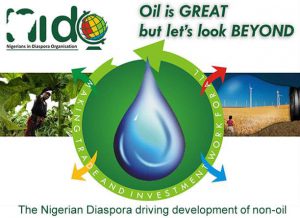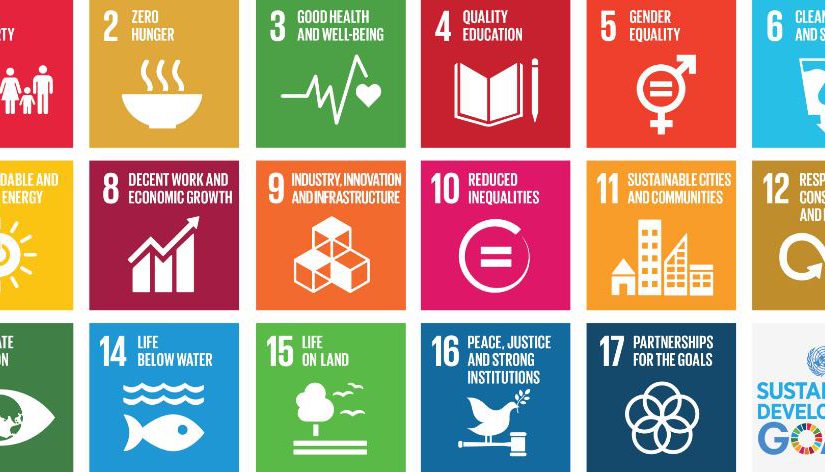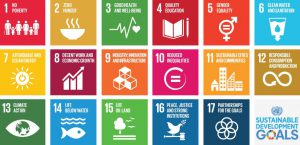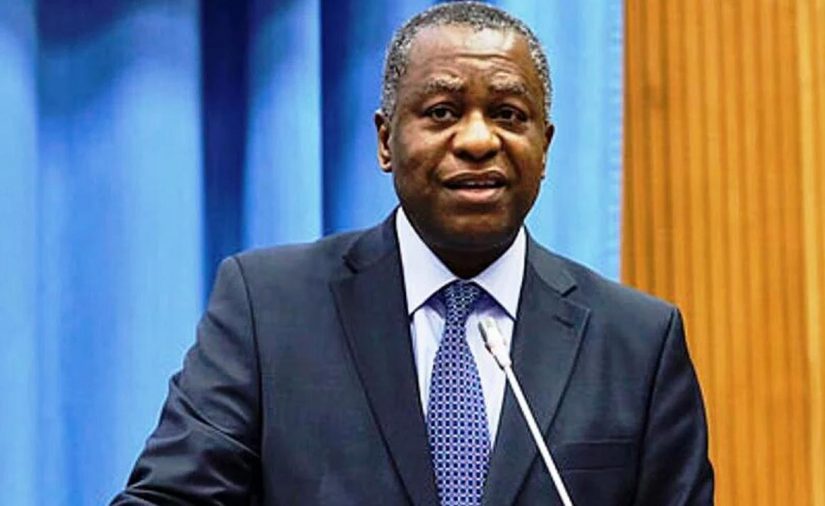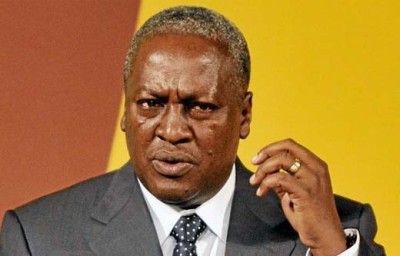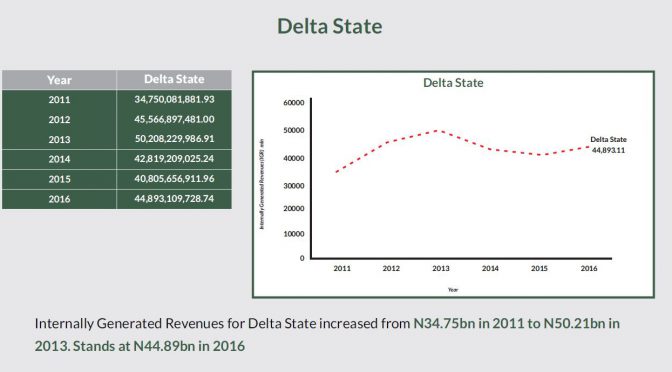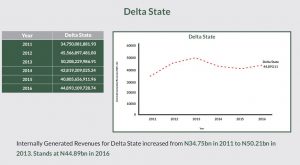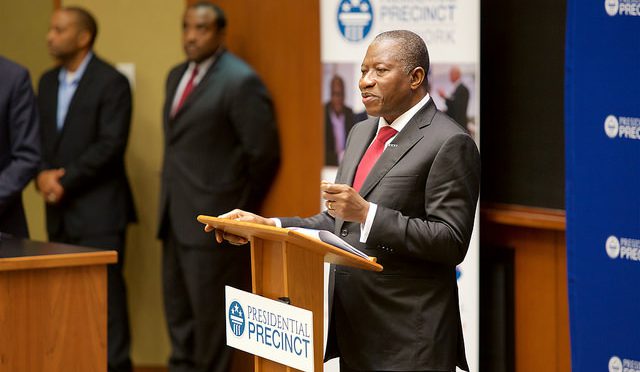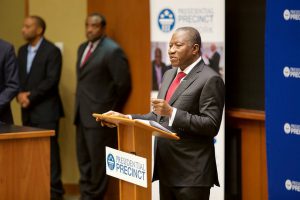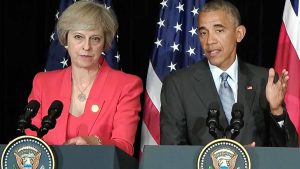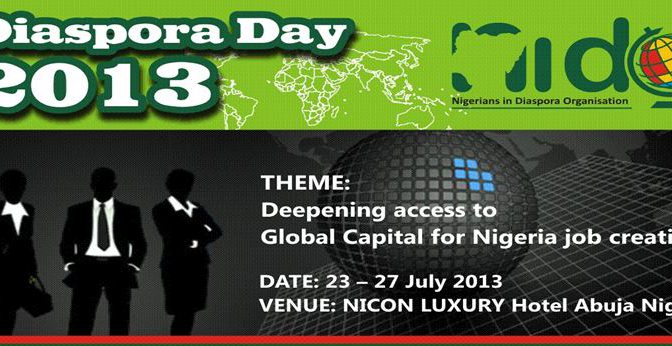A COLLATION OF PERIODIC BRIEFINGS OF THE GLOBAL DIASPORA PLANNING COMMITTEE TO THE STAKEHOLDERS IN THE RUN-UP TO THE 2013 NATIONAL DIASPORA DAY EVENT
0. PREFACE TO THE CHRONICLE
There is a heightened debate about what and how a purposeful Diaspora Day should look like. A cursory look at the content of the debate has revealed that the issues at the core of the debate today, are not very much different from what they were in 2013 and perhaps way back. Indeed a remarkable retrogression could be noted. On the risk of saddling you with issues you are conversant with but in consideration of the numerous inquiries that I have continued to receive from press and public, I felt it was imperative to publish this chronicle of five briefing notes exactly as they were released at the time to the stakeholders. I note the burning desire of many to gyrate towards a new Diaspora Day model. Though some of the ideas espoused in this chronicle may now be irrelevant, a good part of it will certainly be useful contributions in the process of molding or remolding Diaspora Day that is fit for purpose. You may therefore wish to consider this a reminder to all stakeholders of where we are coming from, in the expectation that it will help chart a new course going forward.
Wishing you a good read!
Collins Nweke
Chairman Global Diaspora Planning Committee 2013 / Chairman NIDO Europe 2011 – 2013
DIASPORA DAY BRIEFING NOTE 1 DATED WEDNESDAY 29 MAY 2013
It has become necessary to put out this note following several calls from individual Diaspora and other stakeholders concerned about the state of play with Diaspora Day 2013. Some have drawn attention to a website purportedly carrying information about ‘Diaspora Day’ with a call to individuals to register for the event.
While we do not intend to undermine efforts from any individuals or domestic groups towards holding any variant of Diaspora Day, it is important for you to know that neither the global leadership of Nigerians in Diaspora Organisation nor the Nigerian National Volunteer Service (NNVS) under the Office of the Secretary to the Government of the Federation is officially aware of or has authorized Diaspora Day plans as presented in the published website.
You will recall that in 2012, the Diaspora Day was called off at the last minute by the then Permanent Secretary in charge of the event. This left numerous individuals and families in Diaspora stranded as tickets for this annual event had been purchased and their summer plans made to fit into the Diaspora Day. Though we were not responsible for the chaos at the time, the leadership of NIDO took responsibility for an aggressive impression management to limit the effects of the cancellation to the Diaspora. We also made a commitment then to take the side of caution by not releasing any information to the public on subsequent Diaspora Day until we secure a formal written confirmation from Government that the Diaspora Day 2013 will hold. This is a position that the Permanent Secretary (Political & Economic Affairs) Office of the Secretary to the Government of the Federation wholeheartedly endorsed, appealing for our continued understanding. Just this morning, assurances from Government that the requested written confirmation will shortly be obtained, was renewed.
Above situation notwithstanding, we have continued to liaise with the Permanent Secretary and the NNVS and so far, all relevant preparations are in place including, tentative booking for venue, programme dummy, public sector resource persons, et cetera. Indeed all major preparatory work is in place following an Implementation Plan that we developed in concert with the NNVS. Following budget approval by the SGF, these deliverables would be deployed and appropriate announcements made by the official bodies.
Finally, it bears emphasizing that the NNVS remains the anchor for Nigerian Diaspora Day in concert with NIDO and other relevant Diaspora and domestic bodies. Privatization of this most important annual event is not in discussion at present. Should that become the case, it goes without saying that you shall be kept posted. Until then please choose the side of caution with us and disregard any call to register for the official Diaspora Day 2013.
Thank you and please look out shortly for more on this!
DIASPORA DAY BRIEFING NOTE 2 DATED 23 JUNE 2013
- General
In our Stakeholder Communication of 29 May 2013, we intimated you that choosing the side of caution; we have decided not to release any conclusive information to the public on Diaspora Day until we secure a formal written confirmation from Government that the Diaspora Day 2013 will hold. Though such written confirmation has not been received from Government, we observe that planning is intensifying. We have continued to be reassured that the letter will reach us at any moment. It goes without saying that same will be communicated to you without any delay. In the meantime, we thought it is important to communicate the current state of play to you, hence this Briefing Note. It should also be made clear to you that in as much as we desire otherwise, organisation of Diaspora Day remains under the control of Government. While we intensify our call for a reform of this situation, to engender true partnership, we are cooperating with Government within the boundaries of reason, irrespective of the limitations, to have as successful an event as possible.
- Project-Based Diaspora Day 2013.
The position of Nigerians in Diaspora Organisation remains that Diaspora Day must move away from converging in Nigeria for the sake of conferencing. A Diaspora Day without content and character is, in our view, a waste of public resources. In our Implementation Plan, submitted to the relevant authorities in April 2013, we have articulated clearly our vision of an achievable project-based Diaspora Day in which Nigeria will be the ultimate beneficiary. We have received documented commendations from all quarters in and out of Government for our vision in this respect. We therefore remain committed to contributing to the Diaspora Day 2013 from a project-based perspective focusing on three core thematic areas: Technology, Health & Education with job creation as the melting pot. We will encourage you to continue thinking along these lines in a quest to adding value to this important national event. We thank those of you who have availed us projects for presentation and do request those whose projects are yet to be submitted, to expedite action.
- Registration of Delegates
In an earlier communication, we had drawn your attention to an unauthorized website calling you to register for the Diaspora Day. That position is yet to change because the traditional anchors of the Diaspora Day, which is the NNVS, has not advised us otherwise. Until that happens, you may wish to register for the Diaspora Day 2013 from the brand new NIDO worldwide website (www.nidoworldwide.org) as from Wednesday 26 June 2013.
- Resource persons
We wish to draw attention of persons interested in presenting projects to the following excerpt from the Diaspora Day Implementation Plan:
“The Diaspora Day 2013 will therefore de-emphasize academic presentations. It will be project-based and will target only implementable projects ready for Nigeria as a lucrative investment destination. The following thematic areas will be the core focus of the Diaspora Day 2013:
- Technology.
- Education.
- Health.
- ….”
Along above line, we therefore call on you to submit your project(s) if you are yet to do so. Furthermore the voluntary services of Rapporteurs and others who possess expertise in any of the thematic areas identified above and are willing to chair relevant breakout sessions, are required. Kindly indicate your interest by sending an email to chair@nidoeurope.org or to your continental representative on the Global Planning Committee.
- Accommodation
As of today, we do not have any conclusive information from the NNVS on arrangements for accommodating Diaspora Delegates. In our discussions with the NNVS, we have represented the view that like in previous years, the Diaspora expects to be accommodated for the entire duration of the Diaspora Day. From the information available to us and corroborated by our Implementation Plan, the Diaspora Day is to run from 23 – 26 July 2013. It has been rumored in some quarters that the NNVS is planning to have the Diaspora pay part of their accommodation costs for the period of the Diaspora Day 2013. We are unaware of any such plans by the NNVS. Till date, the NNVS has not confirmed any such intentions to us. If anything, we believe that it is fair to say that the NNVS is doing all that they possibly could, to arrange for the Diaspora to be accommodated. Unfortunately we cannot firmly confirm this to you because we do not have any such confirmation in writing.
- Date for Diaspora Day 2013
You may have read from certain sources, or be informed by some unauthorized entities that the Diaspora Day 2013 is a weeklong event. That information is contrary to the information available to us from authorized sources and indeed the position we expressed in our Implementation Plan. The Diaspora Day 2013 is planned for 24 – 26 July 2013. Arrival may be tolerated for 23 July, while departure can extend to 27 July under strictly pre-agreed conditions. These are part of the issues on which we are seeking official, written confirmation from Government. It is our firm position that an event of this magnitude should not be allowed to be run on the basis of hearsay. We hope that you can begin to appreciate why we stand on the side of caution and professionalism by seeking formal confirmation from relevant official bodies to enable us inform you correctly.
- Closing
Finally, it bears re-emphasizing that as NIDO, we may not be fully in synch with the way and manner the planning process of the Diaspora Day 2013 is proceeding but we have made the conscious decision to remain part of it for the common good. While in it, we will continue to speak out on your behalf in favour of a more professional organizational approach. Nobody is served well with a fire-brigade approach in an event as important as the Diaspora Day.
Thank you for your patience and understanding. Be rest assured that as more information become available to us, same will be made available to you.
DIASPORA DAY BRIEFING NOTE 3 DATED 29 JUNE 2013
- General
Last week we brought you update on the planning for Diaspora Day 2013. One point in that update bears underlining, which is that despite the odds, shortcomings and challenges, our resolve to work with Government, represented by the Nigerian National Volunteer Service (NNVS) in ensuring a successful Diaspora Day 2013, remains unshaken. Perfectly conscious of the fact that the NNVS remains the organizers of Diaspora Day, we invite you to join us in that resolve to make the event the success that it ought to be. Ours as NIDO is that of a supporting and advisory role and we shall continue to take these roles seriously. We must also be conscious of the limitations of our role: we can only advise but what Government does with our advice is entirely up to them. That is the situation as of today. Going forward the leadership of NIDO believes firmly that a reform is urgently needed, such that accountability, partnership and stakeholdership are placed at the centre of this whole business.
- Project-Based Diaspora Day 2013.
Nigerians in Diaspora Organisation remains an unrepentant proponent of project-based Diaspora Day because that is the imperative of our time as an emerging economy. A project-based Diaspora Day ensures better value for our time away from work and family. Above all, we represent the view that previous six years of Diaspora Day have been experiments in academic and intellectual exposé. Such experiments may have been right at the time but time changes and we must change with time. We will continue to persuade Government along this line and are hopeful for success. In the meantime, we have noted the expanded thematic areas which the NNVS supports as opposed to the three focused thematic areas of technology, education and health, with job creation as the melting point, which NIDO believes is the way to go. Both points having been made and in consideration of the fact that we do not wish to unduly disadvantage our members, we are advising that members who may wish to present papers, decide for themselves in which areas they want to present on. One thing is for sure, the dialogue must continue beyond Diaspora Day 2013 as to which model best serves Nigeria.
- NIDO Unified Website and Registration of Delegates
In line with a unified Nigerian Diaspora as the true global network we are, we have developed a common logo a couple of months ago, which is now being systematically deployed. Along that strategic line, we have launched a common website www.nidoworldwide.org From this website you can also register for the Diaspora Day 2013. The website has experienced huge traffic since its launch as our webmasters continue to update and upload contents. Please bear with us if you experience any problem attempting to register. Do try again after a little while.
- Accommodation
We have been informed of Government’s arrangements in respect of accommodation as follows: “The Venue has been shifted to NICON Luxury due to the limited budget for this year’s DDAY. 100 Rooms in total are to be provided out of which rooms will be carved out for Special Guests, Speakers, and some members of the Rapporteur and Secretariat. The rest of the rooms are to be split with the main Diaspora Groups proportionately with a few reserved for lesser known but important groups. NNVS is negotiating with NICON Luxury so that discounts will be offered to those coming who will have to pay for themselves. We may also be able to get N11,000 a room at Top Ranks Hotel”
We can attest to the efforts of staff of the NNVS to maximize the comfort of all Diaspora delegates. As much as we want to, we unfortunately cannot give any guaranty of accommodation for any delegates. However we shall follow up closely with the NNVS to ensure equitable allocation of accommodation.
- Date for Diaspora Day 2013
We have been informed that Diaspora Day 2013 is planned for 24 – 26 July 2013. Arrival date is 23 July, while departure is 27 July.
- Closing
Finally, we should place on records that till today, we are yet to receive any official letter from Government on the Diaspora Day as requested and agreed. It must also be mentioned that we have been told that the official letter is ready and may reach us any moment.
We commit to updating you as often as possible on developments as they relate to the Diaspora Day 2013 and allied matters. We also thank you for your patience with us and your kind understanding.
DIASPORA DAY BRIEFING NOTE 4 DATED 3 JULY 2013
- The Presidency Formally Confirms Diaspora Day 2013
We would like to report that on Monday 1 July 2013 a formal letter was sent to the leadership of Nigerians in Diaspora Organisation from the Office of the Secretary to the Government of the Federation (OSGF), officially intimating us of the ‘National Diaspora Day Celebration’ and extending to us ‘Invitation to Participate as Stakeholders’. While we welcome the invitation and have since been actively participating in the planning process, unsolicited as it were, the leadership of NIDO wants to do more than simply ‘participate’ in an event over which we should have some measure of ownership. It is the expectation of the Diaspora that a partnership exists between Government and the Diaspora in planning and executing the Nigeria Diaspora Day. That said, it must be on record that we appreciate the work being done by the Planning Team under very difficult circumstances. Despite the limitations, the Directors of the Nigerian National Volunteer Service (NNVS), under the OSGF have continued to do their best to be the best anchor of the Diaspora Day as they possibly could.
Being invitees and not partners in the planning of the Diaspora Day means that we can only offer non-committal advice. What Government does with the advice proffered is entirely up to them. We do not think that the Diaspora, particularly Nigerians in Diaspora Organisation, recognized by Government as the official representatives of the Diaspora deserves to be treated in such shabby manner. We have made our views known to Government while continuing at the same time to work with the organizers towards a successful event. A reform is urgently needed. The leadership of NIDO will continue to persuade and lobby Government in that direction as we allow them the space to do their job.
According to the formal letter from Government, the Diaspora Day 2013 runs from “Wednesday 24th – Friday 26th July with the Official Opening slated for “Thursday July 25”
- Deadline for Registration and Submission of Abstracts Extended.
In consideration of the uncertainties that have beclouded the Diaspora Day 2013 and the late notification and confirmation from Government, many Diaspora have either put off plans to attend or have delayed decisions to participate in the event. Less than 48 hours after registration for participation opened on our website www.nidoworldwide.org many of you registered en mass and are still registering. We thank you for remaining loyal and understanding even as your patience was tested. We are happy to announce that as a result of our intervention with the organizers, the deadline for registration has now been extended to Friday 5 July 2013. Similarly, those who wish to present projects or papers now have until Friday 5 July to submit their abstract for consideration. Kindly send your abstract to chair@nidoeurope.org or to your continental representative in the Global Diaspora Planning Team. Details are available on www.nidoworldwide.org
- Diaspora Award
We have reasons to believe that some clarifications are needed about whether or not there will be a Diaspora Award in the Diaspora Day 2013. Please be informed that there will not be a Diaspora Award in the Diaspora Day 2013. Indeed in the initial concept for the Diaspora Day 2013, Diaspora Award was proposed. The position of Nigerians in Diaspora Organisation was and remains that a Diaspora Award is a good idea but not one that can credibly and transparently be organized in 2013 due to limited time. NIDO cannot afford to join the growing list of Awards organisations with neither content nor character. The Diaspora Award that we envisage must be open, participative, transparent, free and fair. In the last couple of weeks, talks have intensified that the Diaspora Award will be taking place despite the objection to this by NIDO. We therefore had to seek and indeed obtained confirmation from the Planning Team that no Diaspora Awards will take place at the Diaspora Day 2013
- Accommodation
In our last Update, we reported as follows:
We have been informed of Government’s arrangements in respect of accommodation as follows: “The Venue has been shifted to NICON Luxury due to the limited budget for this year’s DDAY. 100 Rooms in total are to be provided out of which rooms will be carved out for Special Guests, Speakers, and some members of the Rapporteur and Secretariat. The rest of the rooms are to be split with the main Diaspora Groups proportionately with a few reserved for lesser known but important groups. NNVS is negotiating with NICON Luxury so that discounts will be offered to those coming who will have to pay for themselves. We may also be able to get N11,000 a room at Top Ranks Hotel”
Based on the sort of enquiries coming from members, we are conscious of the fact that some of you are anxious to know exactly what the situation is with accommodation for Diaspora Day 2013. We are unaware of any new development regarding accommodation but will continue to follow up with the organizers on behalf of members.
- Closing
We commit to updating you as often as possible on developments as they relate to the Diaspora Day 2013 and allied matters. We also thank you for your patience with us and your kind understanding.
DIASPORA DAY BRIEFING NOTE 5 DATED 19 JULY 2013
- The D-Day is Upon Us
We are stepping out of the last preparation week of the Diaspora Day 2013 and into the week when the event holds. What began with a whole lot of uncertainty, numerous questions with few answers is now becoming the reality that it ought to be. We thank you for your characteristic resilience as Nigerians and your faith in us to uphold and defend your interest. You have been patient with us as your mandated representatives as we battle on your behalf under difficult circumstances to bring you information and serve you with excellence.
The transformational agenda of the current government in Nigeria is not a one-way traffic. It is like the root system of a tree, with each root, as tiny as it is, supplying from its vintage point, minerals, to nourish the stem. For this home-grown ideology to blossom and impact substantially on the citizens, Nigerians in Diaspora in general and NIDO in particular, should add verve to the Nigerian project. Diaspora Day 2013 should go down in the annals of history as the commencement of a renewed stride to position NIDO as a critical root of the Nigerian tree. NIDO aspires to take its place as an important wire supplying lifeline to the whole country. It is from this perspective that we believe the Diaspora Day must be a tool for us in facilitating the local developmental agenda from the Diaspora vantage point by supplying the ingredients required to grow the agenda. By a set of deliberately chosen actions, we are embarking on this project hence our favour for a project-based Diaspora Day as evidenced by the choice of projects that we have encouraged our members and sympathizers to present this year.
- Accommodation
To our relief the organizers have informed us that accommodation will be provided to all duly registered Diaspora delegates. We are therefore most delighted that we will not have to deal with the clumsy exercise of room allocation whereby some delegates would have to be left disappointed. We are aware that some Diaspora have given up their plans of attending the Diaspora Day 2013 in view of some of the uncertainties involved in the planning. However we dire to encourage you to firm up your travel plans and converge with us in Abuja as it promises to be worth the trouble for you.
- Confirmation of Resource Persons
Majority of the resource persons (presenters, discussants, rapporteurs) from our membership or facilitated by us have been formally notified of their status. We are hoping that the organizers will heed our recommendation and also formally notify persons whose projects or papers have not made the list on this occasion. If you applied to present a paper and have not yet been formally notified of your status, do contact Ms Badewa Williams by email badewawilliams@yahoo.com and Mrs Ayangade foye_d@yahoo.com
- Delegate Confirmation Letters / Airport Shuttle
Some of you have so far received Letters of Confirmation as delegates while others are yet to receive theirs. Please be reassured that as long as you are duly registered as a Diaspora delegate, you will be received and taken care of. Shortly, you shall be receiving your confirmation letter either from the NNVS or from NIDO. We shall be mounting a Welcome Desk to ensure that our members are professionally received on arrival at the Hotel. Unfortunately we are unable to give you conclusive information on Airport – Hotel Shuttle arrangements for delegates. As soon as any such information becomes available from the organizers, we shall update you. Meanwhile it might be advisable to start making your shuttle arrangement to the NICON Luxury Hotel, where as mentioned earlier, NIDO dedicated hosts and hostesses will be on hand to warmly welcome you.
- List of Projects & Papers
We are compiling a list of papers and projects to be presented at the Diaspora Day 2013 for enhanced visibility using multiple media. If your project or paper has been approved for presentation and you wish the project to be listed by us, kindly forward project details to us via email to chair@nidoeurope.org Endeavour to include project title, one-sentence description, your name and country of residence.
- NIDO Contact Numbers in Abuja
Should you have any questions regarding your participation in the Diaspora Day 2013, please feel free to contact the following Diaspora leaders for a helping hand:
| Mr Ganiyu A Dada
Chairman NIDO Americas | Member Diaspora Global Planning Committee |
Tel. 0803 578 45 94 |
| Mr Ben Osawe
General Secretary NIDO Europe | Member Diaspora Global Planning Committee |
Tel. 0813 534 5011 |
- Formal Launch of New Corporate NIDO Logo by Mr President
The new corporate logo of Nigerians in Diaspora Organisation is billed to be launched by Mr President during the opening session of the Diaspora Day 2013 on Thursday 25 July. You are welcome to witness this history-making event.
Thank you for the opportunity to serve you as your Global Diaspora Representatives in planning the Diaspora Day 2013!
(signed)
Hon. Collins Nweke | NIDO Europe | Tel. +32 498 345 889 | chair@nidoeurope.org
Chairman Diaspora Day 2013 Global Planning Committee
Mr Ganiyu Dada | NIDO Americas
Dr Babatunde B Lee | NIDO Africa
Dr Mohammed Aliyu-Paiko | NIDO Asia-Pacific
EPILOGUE
Permanent Secretary (Political & Economic Affairs)
Office of the Secretary to the Government of the Federation
The Presidency
Abuja FCT – Nigeria
07 July 2013
Dear Sir,
We must say that both Mrs Ayangade and Ms Williams have so far been responsive in their handling of the planning of Diaspora Day 2013. Worthy of special mention is the speed at which inquiries are responded to and the availability to offer explanations for grey areas. As registration and submission of papers close, and as you retire to deliberate on accepted papers for presentation, we deem it pertinent to leave you with the six-point thoughts below:
- While NIDO Americas, Asia-Pacific and Europe have all received formal invitation to attend the Diaspora Day as stakeholders, our colleagues in NIDO Africa are yet to receive formal invitation. Kindly consider sending an invitation to Dr Lee B Babatunde, email: leebabatunde@yahoo.co.uk
- It has come to our attention that as a result of recent efforts at streamlining the operations of Nigerians in Diaspora Organisation (NIDO) for more efficiency and effectiveness, particularly in relation with the development of a common logo, website, et cetera, certain persons, for whatever reasons, now tend to equate us as a single entity, with other Diaspora groups, e.g. ANNID and CANUK, thereby undermining our global spread and deeper penetration in the Diaspora landscape. It will be an aberration to use such unacceptable basis in determining proportionality in matters requiring allocation. By way of illustration: CANUK has a presence only in the UK where NIDO Europe has two out of its 19 Chapters. Similarly ANNID as a small club of friends in some two Cities of the United States is nothing near in size and penetration to one out of the 18 full-fledged Chapters of NIDO Americas. It has become necessary to highlight this issue in view of the disaffection it is already raising with NIDO members. We have reassured members that we believe in your ability to be fair in matters of this nature nevertheless, we thought it is crucial to flag it off with you for proper note and attention.
- We are fully conscious of the fact that not all requests for presentation of projects / papers will be accommodated within the limited space. Considering that we do not as of today have any idea of any objective criteria being employed in your determination of eligibility or otherwise, we can only hope on your sense of fairness and equitable judgment. We must also put on record that as a body, we have taken the decision to avoid role duplication, an idea that Ms Williams has seconded in one of her recent emails. We encourage you to kindly uphold this principle in your deliberations and determination of roles.
- May we suggest that a generic letter be developed which can be sent to those whose papers or projects have not been retained. Except we are mistaken, it is the intention of the planning team to inform only those whose papers / projects have been retained. Similarly, we have taken note of your desire to provide more conclusive information about accommodation by mid-week (10 July 2013). We commend this and encourage you to strive hard to achieve this important goal.
- We may have mentioned this in the past but we would like to reiterate that any and all Diaspora to be allocated rooms MUST identify themselves with stamped passport and flight tickets proving entry into Nigeria not exceeding one month. This in our view is the only way to prevent abuse of the past years where domestic delegates pretend to be based abroad or Diaspora who have been in the country long before the Diaspora Day on other private businesses. These categories of delegates secure rooms irregularly to the detriment of the actual Diaspora delegates.
- We also feel obliged to draw attention to the need for Diaspora Day to be as less political as possible because our members have had reasons to be concerned about this important event being more and more politicized. Over-exposure of the Diaspora Day to politics can be avoided for example through achieving a good balance in the speakers’ slots for political figures, the public sector, corporate Nigeria and the Diaspora.
From what we have seen so far, we are confident that you are equal to the task of sailing this planning process to a safe destination.
